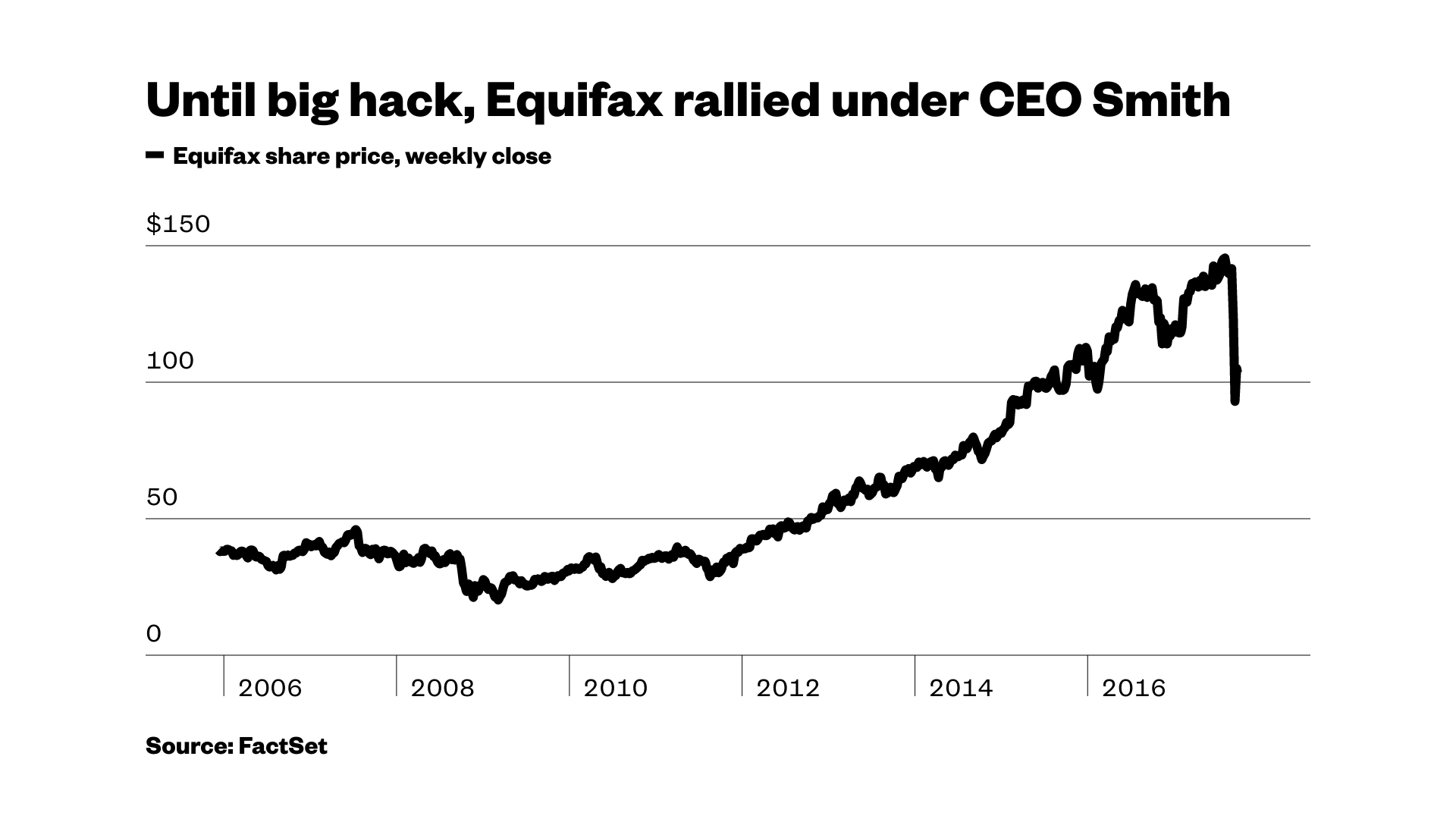Equifax’s hacking controversy claimed a new casualty Tuesday — the company’s longtime chief executive.Richard Smith, who had led the credit-reporting company since late 2005, abruptly retired as chairman and CEO at the age of 57. He thus became the latest of several senior executives to step down following Equifax’s Sept. 7 announcement of a data breach that exposed the personal information of up to 143 million Americans.The incident instantly became one of the worst privacy breaches in an era that’s increasingly rife with them. It has also now ended what had previously been a stellar, high-profile career at Equifax.Under Smith, the company’s stock had more than tripled in value prior to the hack. In particular, he steered the company through the great credit crisis of 2008 and 2009, then positioned Equifax well as consumers gradually returned to using borrowed money to buy everything from homes to purchases at the local mall on their credit cards.That might explain why investors didn’t rejoice at Smith’s departure on Tuesday, with Equifax shares down about 1 percent in late-afternoon trading. But in nearly three weeks since the hack, the stock has shed more than 25 percent of its value. That plunge is ultimately what cost Smith his job. “The cybersecurity incident has affected millions of consumers, and I have been completely dedicated to making this right,” Smith said in a statement Tuesday. “At this critical juncture, I believe it is in the best interests of the company to have new leadership to move the company forward.”Other key details:
“The cybersecurity incident has affected millions of consumers, and I have been completely dedicated to making this right,” Smith said in a statement Tuesday. “At this critical juncture, I believe it is in the best interests of the company to have new leadership to move the company forward.”Other key details:
Advertisement

- Under terms of his contract, Smith won’t get a bonus this year but is still entitled to $18.4 million in retirement benefits. He may also get millions in additional perks, including lifetime health coverage, according to Bloomberg.
- Equifax’s board appointed Paulino do Rego Barros Jr, formerly president of the company’s Asia operations, to serve as interim CEO. It appointed board member Mark Feidler to serve as non-executive chairman.
- Smith, who will remain as an unpaid adviser during the CEO transition, is scheduled to testify about the Equifax hack before the House Energy & Commerce Committee on Oct. 3.